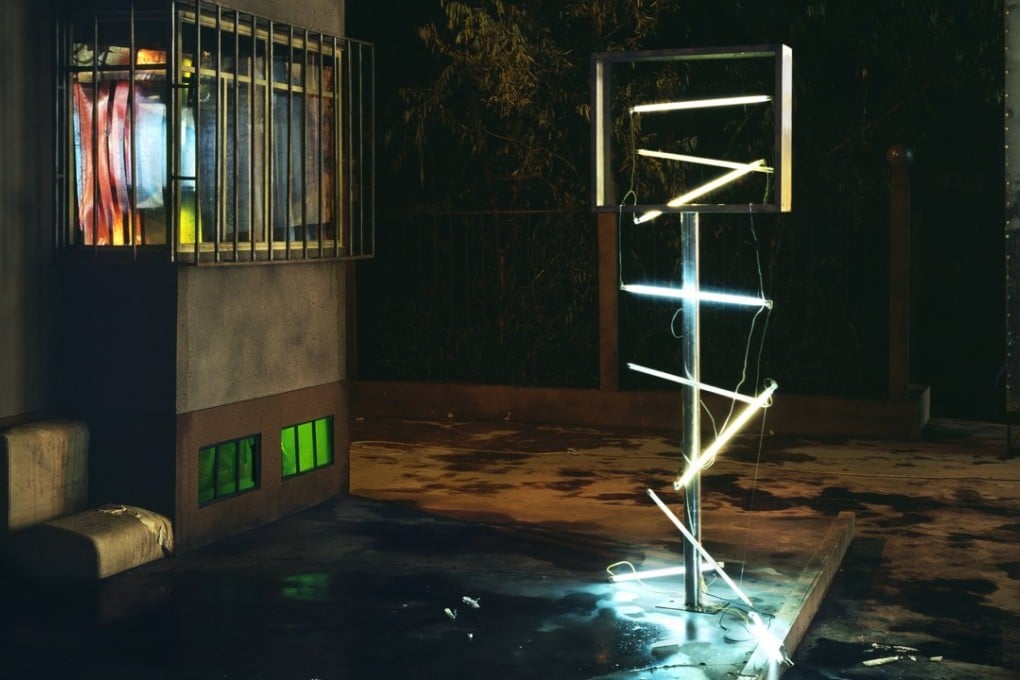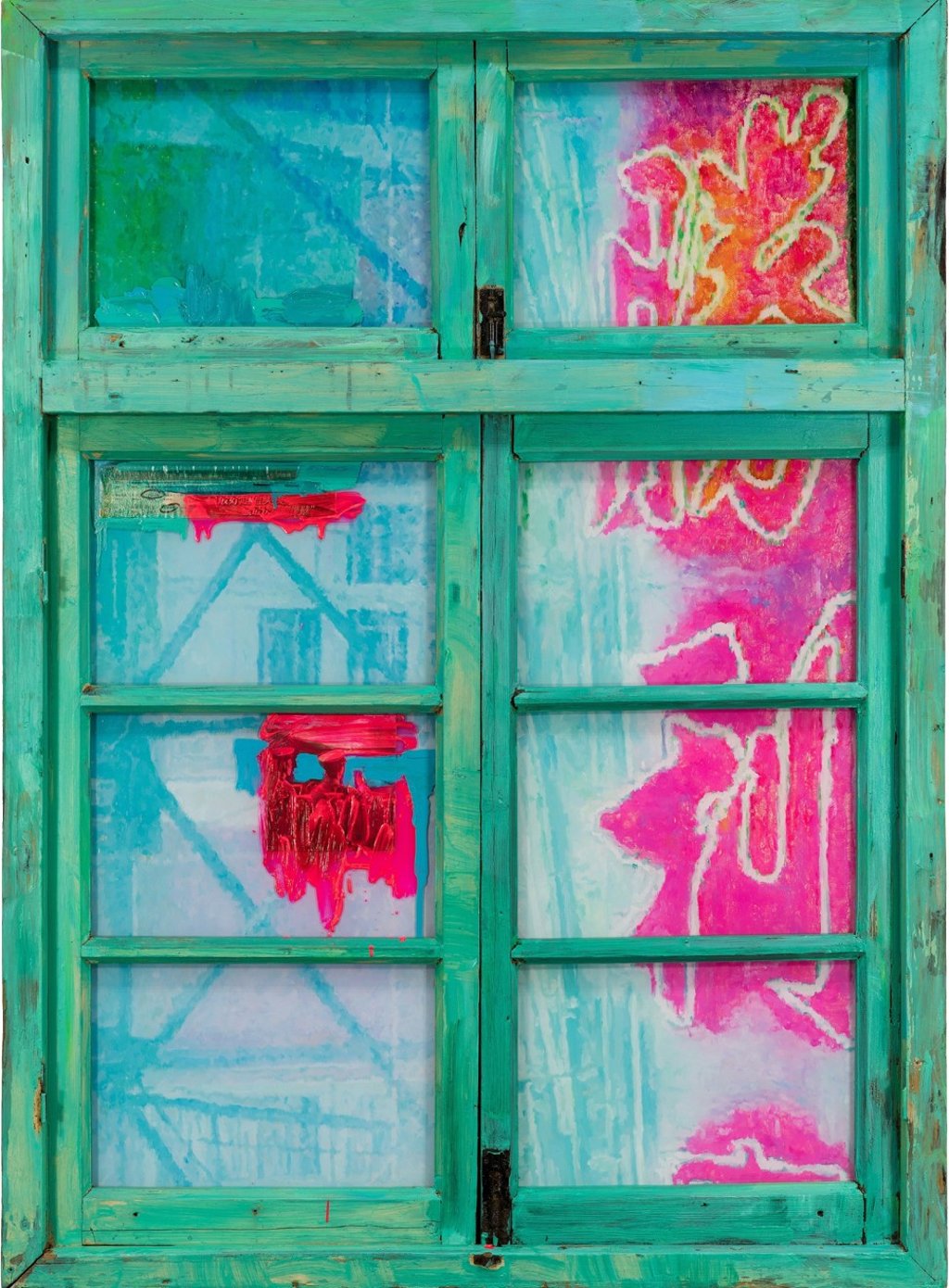Artists in Hong Kong-inspired show seek beauty in dystopian cityscapes
Brilliant City, the David Zwirner gallery’s first exhibition in Asia to feature Asian artists, shows the variety of ways artists react to their home cities or places they know

Outside the David Zwirner gallery in Queen’s Road Central looms Hong Kong’s dense and unyielding concrete jungle. Crowded, noisy, laced with hostility and, often, unpleasant smells, it is a mystery how many people fall under its spell.
The seductiveness of this “archetypal dystopian metropolis” is what inspired curator Leo Xu Yu to put together the gallery’s first exhibition in Asia to feature Asian artists. While there isn’t any artwork from Hong Kong, the selection shows how different artists look at their own version of Gotham and find beauty.
Buildings and objects that are familiar may elicit a strong sense of attachment when change beckons, romanticised and adopted as symbols of values and social systems seen under threat.
Li Qing, based in Hangzhou and Shanghai, collects window frames from demolished buildings and attaches them to her paintings of city scenes. This “Neighbor’s Window” series places viewers inside an older building about to be squeezed out by the new, and makes them a witness to the city’s rapid gentrification. But even the view “outside” the window – the gleaming Jing’an Temple against the glass facade of Shanghai skyscrapers, for example – is one of impermanence. After all, cities’ fortunes ebb and flow with history.

Xu’s choice of the exhibition title, “Brilliant City”, taps straight into Hong Kong’s own sense that its glory days are over. The Chinese name is taken from the lyrics of the 1987 Canto-pop song Starry Night, in which a young Anthony Wong Yiu-ming sang about the lure of Hong Kong’s nightlife while lamenting “this bright city may begin to dim from now”. But nostalgia is certainly not the prerogative of cities that are insecure. Even that most forward-looking of cities – Shanghai – indulges in such sentimentality.
Forever Shanghai (2018) is a tribute to the longevity of China’s oldest bicycle manufacturer and the country’s love of cycling – recently rediscovered through bike-sharing apps. Michael Lin, who spent the past 10 years studying the changes in Shanghai, has covered a wall in the gallery with the Shanghai company’s logo, designed in an old-school typeface, and placed a classic Forever roadster in front of it.